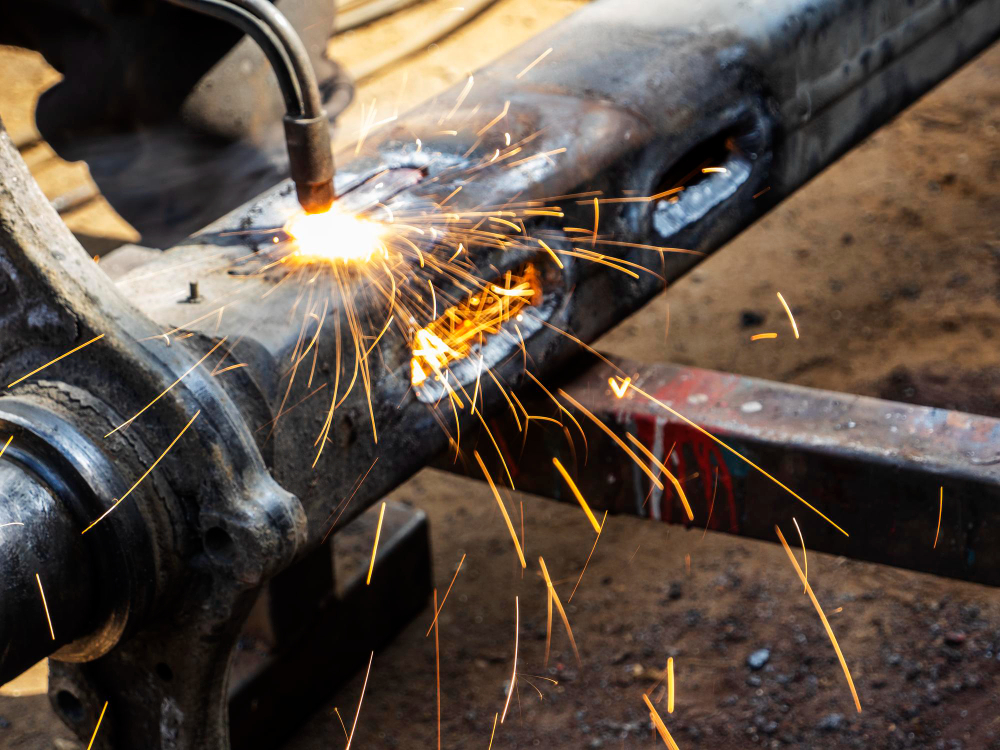In Angel Ruiz we are experts in boilermaking and they support us More than 50 years of experience in the sector. However, boilermaking involves different tasks so that it can be carried out. Today we want to talk to you about the importance of welding for boilermaking, an essential technique through which various types of products are manufactured. metallic structures.
What is welding in boilermaking?
The welding It is a discipline that is part of the engineering which focuses on the manufacturing of metal structures very diverse. It is a technique that is used in the various industries, but today we want to talk to you about the Importance of welding for boilermaking.
The welding It is a process that is used to join two or more metal pieces, merging the edges. Usually, a contribution material which is what helps to form a solid unionIn boilermaking, welding is used to create and repair metal structures able to withstand great pressures, extreme temperatures and other environmental factors (depending on the use given to the manufactured part).

What is the importance of welding for boilermaking parts?
Precision and durability
The welding It is important in boilermaking thanks to the precision and durability which contributes to the manufactured metal structures. The boilermaking works different materials such as carbon steel, stainless steel and special alloys; these materials require welding to be very precise to ensure safety and operation of the structures. One defective and irregular welding may compromise the endurance of the part, causing failures that can have serious consequences, not only from a safety point of view, but also at an economic level.
Adaptability to different projects
In boilermaking, welding is not a standard process, but it needs adaptability to meet the specific needs of each project. It is important to note that, depending on the type of project, structure and the conditions to which the piece will be exposed, different ones are used welding methods; in this sense, we find the MIG welding (Metal Inert Gas), TIG (Tungsten Inert Gas) and welding by hand bowEach welding technique has its advantages and particularities and the choice of method depends on the material to be welded and the application given to the piece.
Importance of welding: Safety and regulatory compliance
Another reason why Welding is essential in boilermaking It is for its role in fulfilling the safety regulations. The metal structures that are manufactured must comply with standards of quality and safety very strict; these can be met, among others, through precise and robust weldsAs we already mentioned, welds must be strong and safe.
Advances in welding for boilermaking
To the boilermaking It is also known as industrial boilermaking and its function is to build tanks that are used for the transport of weights or for storage. Boilermaking and welding are closely linked, since they are responsible for the tank manufacturing to transport weights that can be in liquid, solid or gaseous state. These techniques also allow for the construction of large andmetal and architectural structures and even parts for the naval and petrochemical sectors.
The recent ones technological advances have allowed welding in boilermaking to benefit from innovations that improve both the quality like the efficiency of the production processes. A clear example is the automation and the use of welding robots that, little by little, have been transforming the industry. This automation improves the process efficiency, lightens the workload (increased productivity), reduces delivery times, increases operator safety and enables the manufacturing of very complex structures and precise.
In conclusion, the welding It is a fundamental pillar for the industrial boilermaking. This technique plays a very important role in the construction of structures that are safe and very durable. Its importance lies in the ability to create Very strong and precise joints, capable of withstanding the most demanding conditions; this guarantees the safety and functionality of the parts and the place where they are placed.